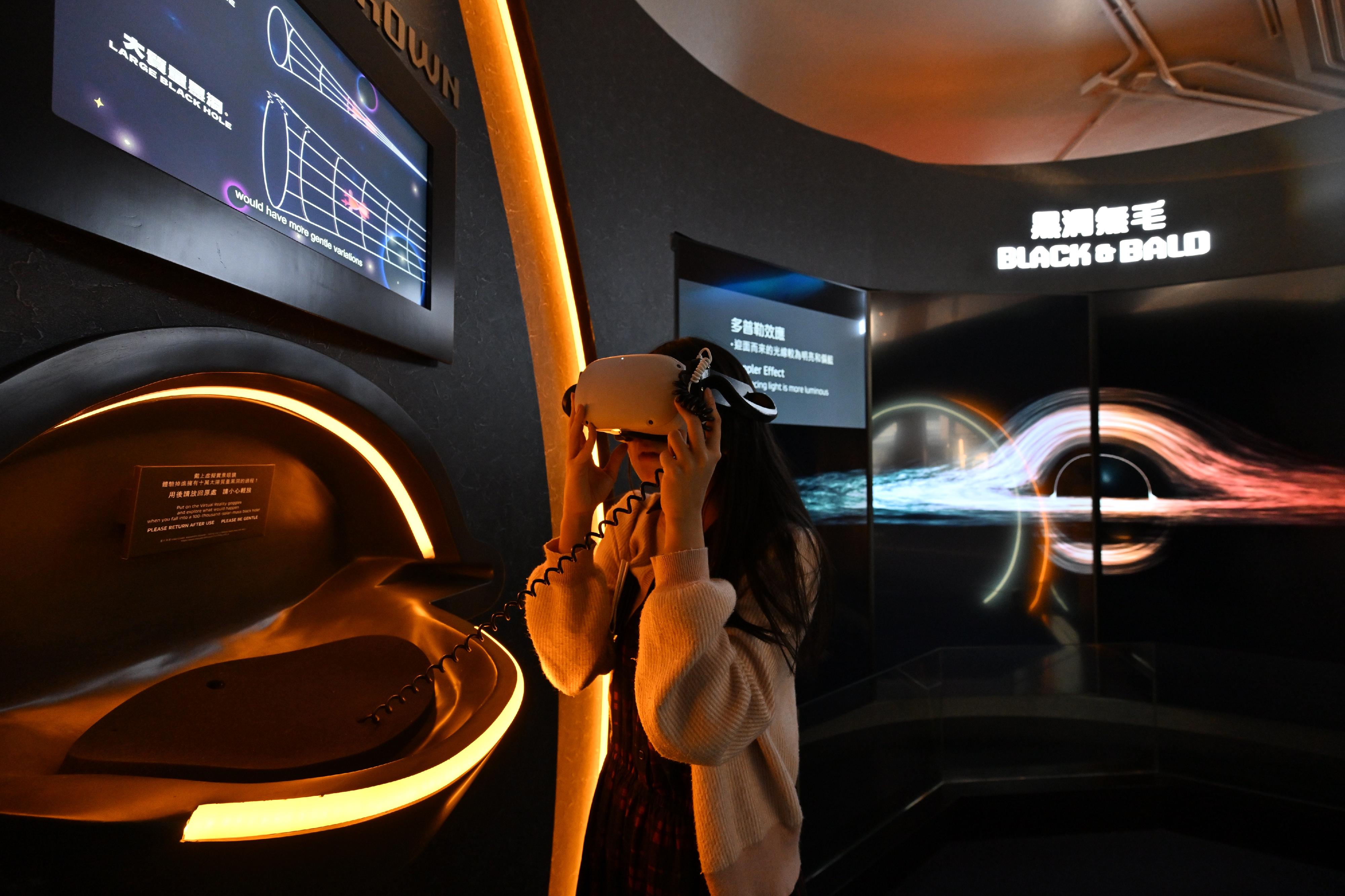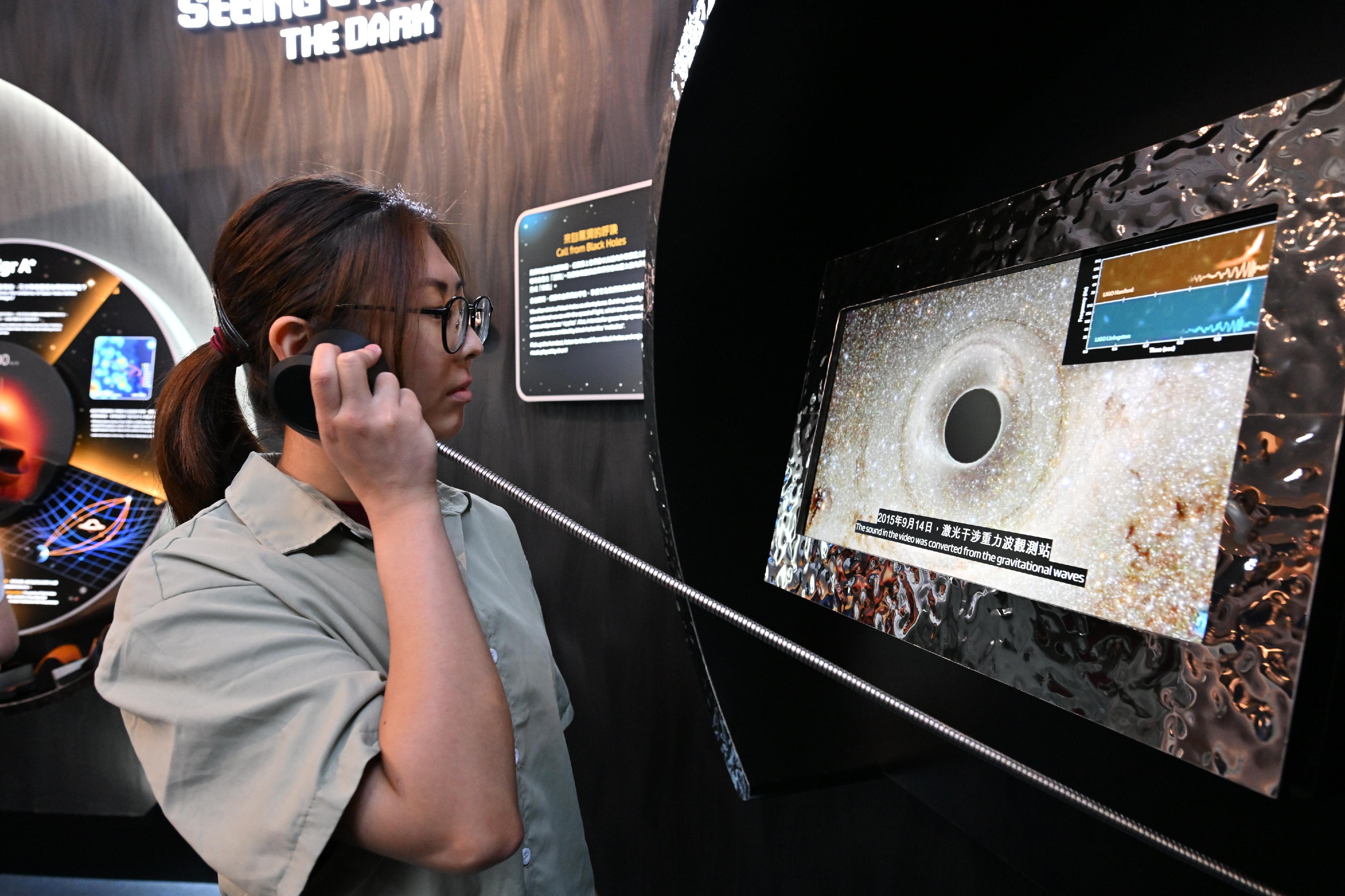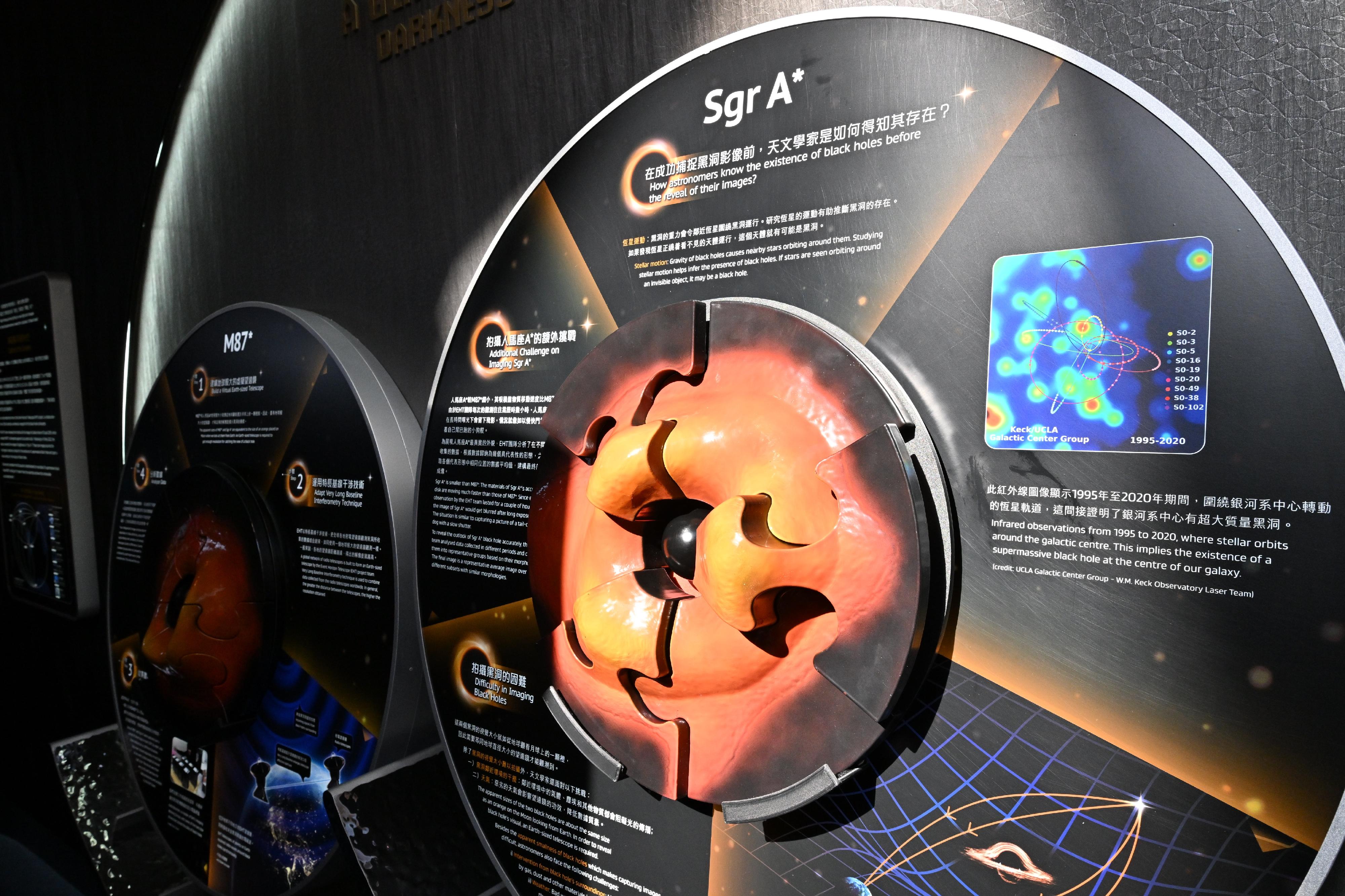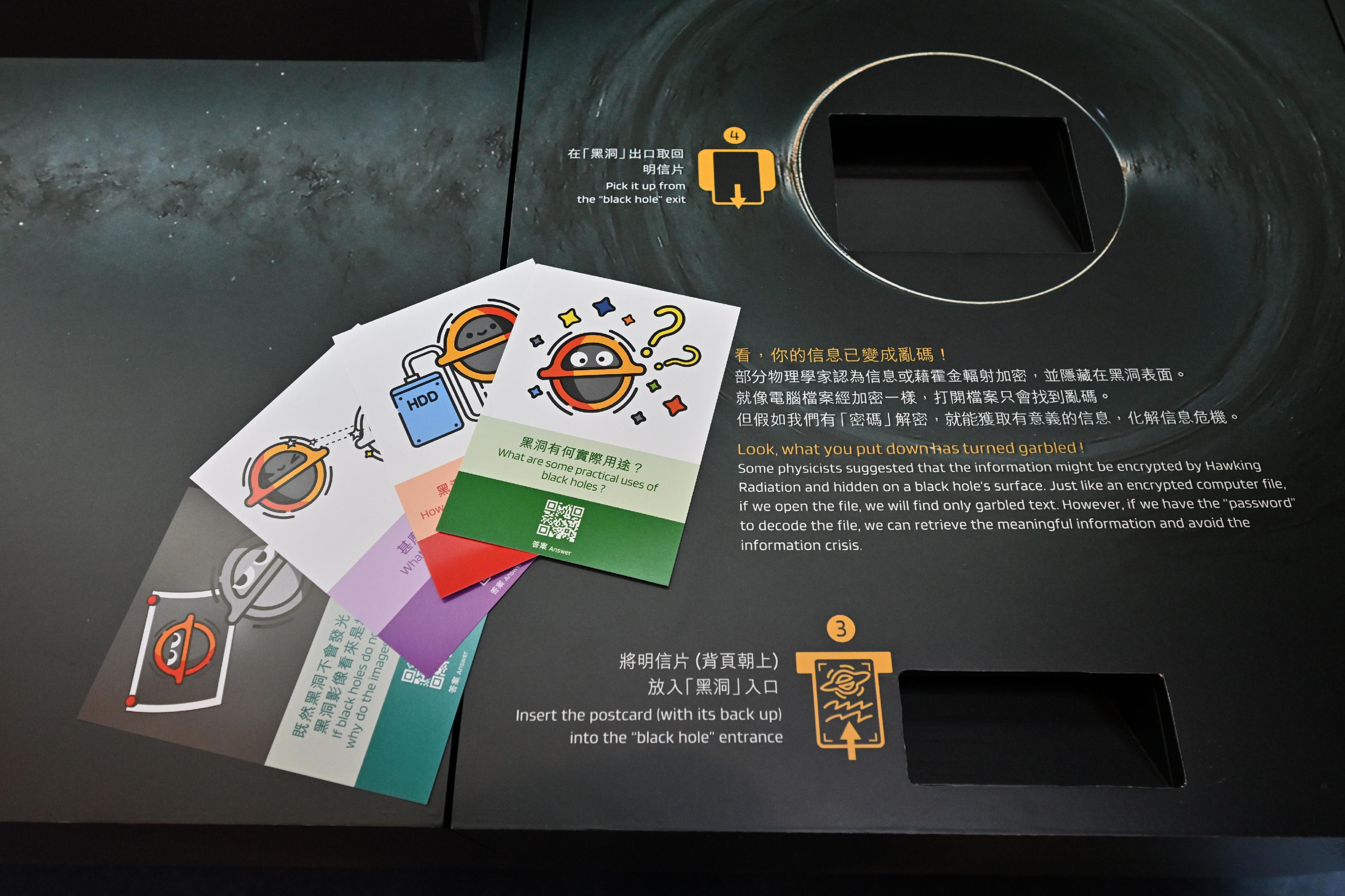The Hong Kong Space Museum will launch a new free special exhibition, "Black Hole: the Information Barrier", starting tomorrow (October 25), leading visitors to explore the enigma of a black hole.
The idea of black holes was first proposed by scientists over 200 years ago, suggesting that the gravitational field of these cosmic behemoths was so intense that not even light could escape. Nevertheless a consensus on their existence was never reached until after decades of research, when scientists finally found concrete evidence confirming the existence of the cosmic voids. To scientists' amazement, black holes are not only crucial to the evolution of the universe but also hold the key to decipher its deepest mysteries.
Spanning across seven different zones, the exhibition will unfold the history of black hole research, unravel the intricate anatomy of black holes as well as their intriguing births and deaths. Visitors can also gain insight into the latest black hole research being conducted through the work of local scholars.
Through a series of interesting interactive exhibits, the exhibition enables visitors to have a simulated experience of plunging into a black hole, hear haunting sounds converted from gravitational waves created by black holes, uncover the technology of producing black hole images through 3D puzzles, and learn the scientific principles underpinning the detection of gravitational waves. Additionally, the exhibition will delve into the mind-boggling black hole information paradox and provoke thoughts regarding the potential utilisation of black holes as a new resource.
The free exhibition will be staged at the foyer of the Hong Kong Space Museum (10 Salisbury Road, Tsim Sha Tsui, Kowloon) from October 25 to May 27, 2024. Astronomy film shows and lecture related to black holes will also be held by the Hong Kong Space Museum. For details of the exhibition and programmes, please visit hk.space.museum/en/web/spm/exhibitions/special-exhibitions/black-hole-the-information-barrier.html, or call 2721 0226 for enquiries.
Follow this news feed: East Asia












